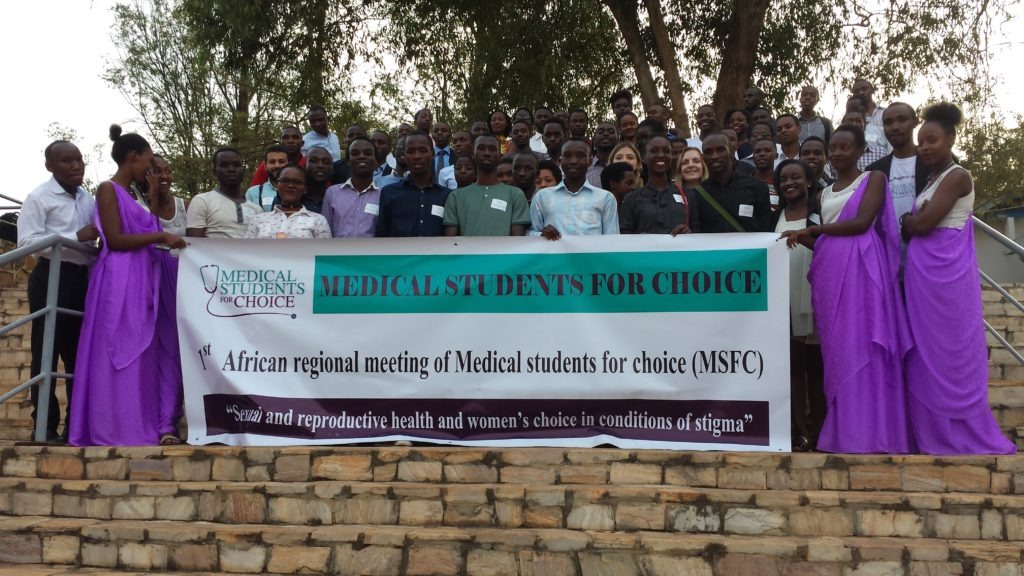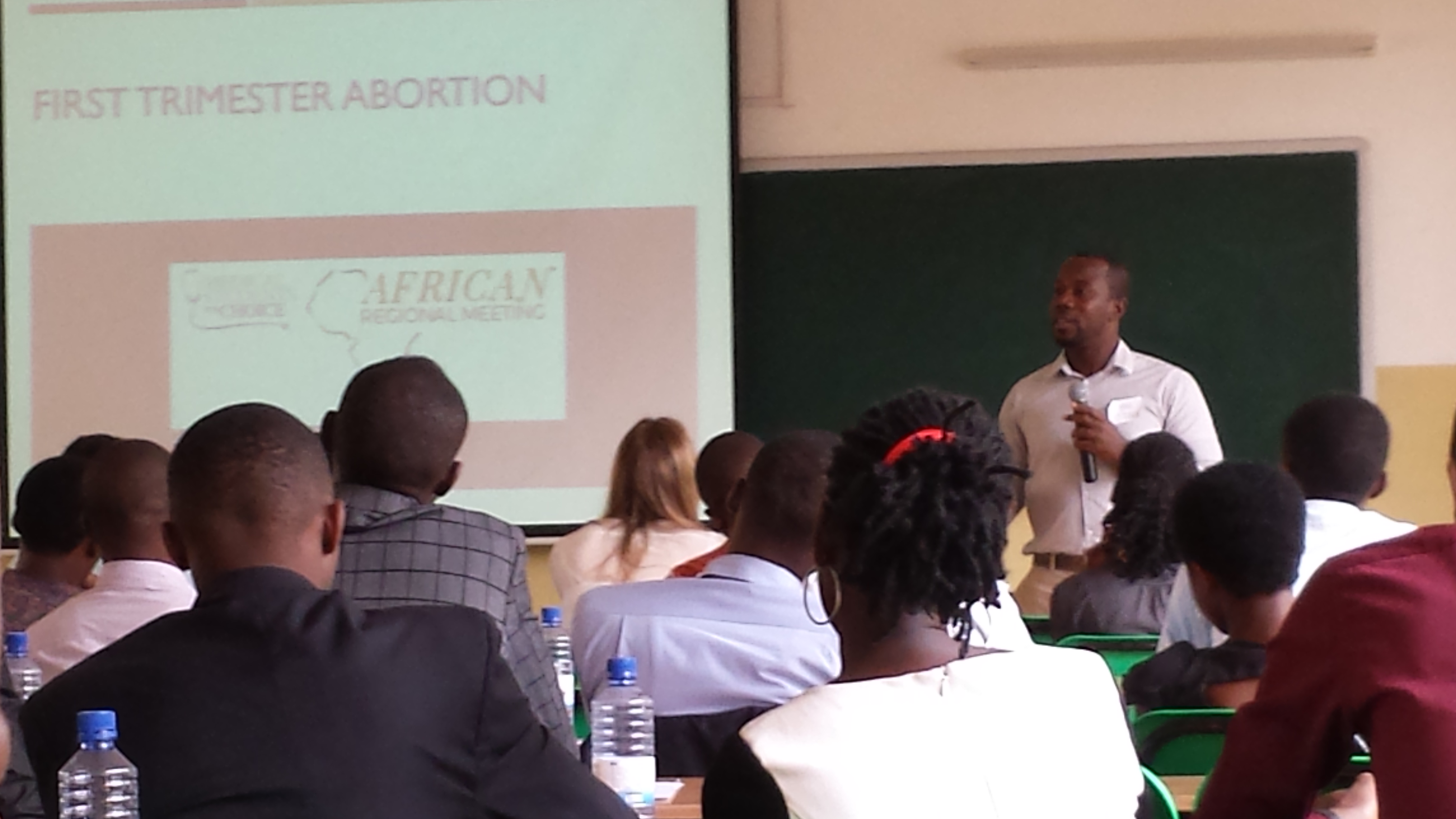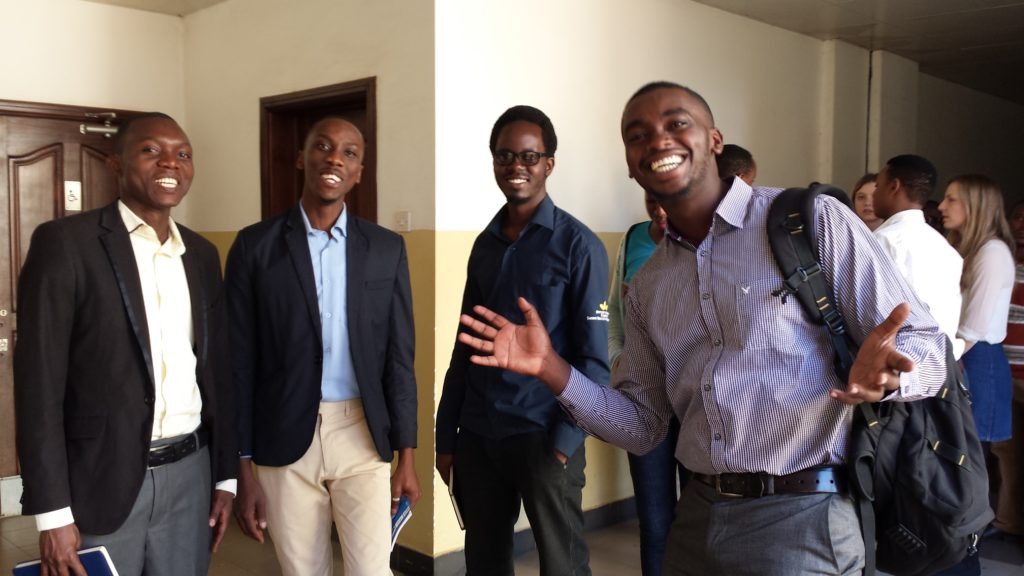University of Rwanda, Kigali, Rwanda
July 8, 2017
By Lois V. Backus, MPH
Executive Director, Medical Students for Choice
Women’s ability to exercise their sexuality and plan their families with the help of qualified physicians is more threatened today than it has been in nearly 50 years. After decades of progress with safe abortion and effective contraceptive options, the 2016 US election has brought patient access to a crisis level. The reinstatement and broadening of the Global Gag Rule on US family planning funding has taken domestic threats against family planning onto the worldwide stage. In the context of these threats to reproductive health, MSFC brought together 76 MSFC members from eight countries and 12 medical schools in Africa for our first African Regional Meeting.
MSFC has been supporting chapters in Africa since 2012. In the past two years, the number of chapters and countries in which MSFC members are active has grown by 300%. In the context of the worldwide impact of the 2016 US election and President Trump’s reinstatement of the Global Gag Rule, MSFC felt it was imperative to bring together our African members in order to provide educational support and more clearly ascertain their needs. Abortion is either illegal or highly restricted in all the countries represented, but in most countries advocacy efforts are underway to liberalize their abortion laws. In most cases, the MSFC chapter is engaged in those efforts. The African Regional Meeting provided students with education on abortion and contraception, as well as opportunities to explore personal values, develop advocacy skills, and obtain skills in abortion provision. A student from Uganda wrote:
In my country, contraceptive methods are used by a small percentage of women. I, as a future Doctor, want to provide contraceptive options to my patients. Also, even though abortion is illegal, I want to advocate with the government and civil society for the right of all women to decide about their sexuality and freely choose the fate of their pregnancy. People are born equal and must also be free to make decisions about their lives.
In order to ensure full representation from all MSFC chapters in Africa, MSFC paid travel and housing for all students attending from outside Rwanda. Students attended from Nigeria, Malawi, Egypt, South Africa, Burundi, Tanzania, and Uganda in addition to 48 students from Rwanda. Universities represented were:
- The University of Rwanda in Kigali
- Gulu University (Uganda)
- University of Malawi
- University of Burundi
- Kilimanjaro Christian Medical University (Tanzania)
- University of Cape Town (South Africa)
- Alexandria University (Egypt)
- Mbarara University of Science and Technology (Uganda)
- University of Gitwe in Rwanda
- Obafemi Awolowo University (Nigeria)
- Makerere University (Uganda)
- Busitema University (Uganda)
MSFC staff hoped to use this opportunity to gather with our African members to learn more about the challenges students face in each country and medical school and to assess student needs through discussion and observation as well as our more formal evaluation process. We also gained valuable insights that will enable us to communicate more effectively and provide the students with financial support more efficiently.
The meeting was a memorable event. Personally I learned quite a lot from the meeting and my comfort with abortion was greatly fortified. I intend to share the knowledge acquired with friends as we strive to take our work to the next level. -A student from Malawi
MSFC had to limit the number of students from most of our chapters who came to the meeting simply because we had no additional funds with which to fund their travel to Rwanda. After advertising the meeting on MSFC’s website, however, extraordinary interest was shown in this opportunity to learn more about abortion and contraception from physicians, medical faculty, and other students in many countries in sub-Saharan Africa.
Over these past 8 years, MSFC chapter members in Africa have benefitted from MSFC’s establishment of training collaborations with IPPF affiliate organizations in Uganda, Tanzania, and Ghana through MSFC’s Reproductive Health Externship Program. Dr. Kenneth Buyinza, clinical director of the IPPF affiliate in Uganda served as our lead faculty member for the meeting. Two other faculty members were MSFC alumni, one an abortion provider in Ghana and the other, from Rwanda, a fellow with the Gates Institute for Population and Reproductive Health at Johns Hopkins. All three of these physicians have already seen funding and service impacts from the implementation of the Global Gag Rule and are even more committed to ensuring that medical students receive education on family planning and abortion so that they can better serve their future patients.
A new physician in Burundi wrote this to us:
In the course of my internship in gynecology and obstetrics from September 2016 to January 2017, four adolescent girls died and six risked their lives, suffering hemorrhage because of unsafe abortion. Other women told me that they have been forced to abandon the use of contraceptive methods by their husbands or their mothers in law and some had children too soon or complications during pregnancy. Furthermore, my country is among the three poorest in the world, more than 60% of children are undernourished and the natality rate is about six children per woman. To educate all Burundian women concerning their sexuality and reproductive health seems urgent. To do this, I need more information.
MSFC’s student members in these African countries all reported fears prior to the meeting that contraceptive access would decline in their countries because of the Global Gag Rule. They reported that declines in contraceptive access and corresponding increases in unsafe abortion were the primary negative impacts under the Global Gag Rule during earlier US administrations. For all of us at the African Regional Meeting, this made the need for education on contraceptive options and the skills to safely terminate a pregnancy feel much more urgent.
What was most clear during this meeting was that medical students in Africa, despite more extreme public health needs and barriers, receive no more routine family planning education than medical students in the US, where the public health concerns are often less clear. The students’ gratitude for the opportunity to learn more about family planning issues was heartwarming. Here at MSFC, we are working to develop ways that we can provide more effective training support to these student activists despite the many logistical barriers, and we are seeking in-country partners to help with that effort. Most of all, we hope to use the relationships we built through this meeting to enhance our students’ ability to learn from each other as they advocate for better family planning care for their patients.


